Academic Insight to Thermal Power MSc
08/01/2021
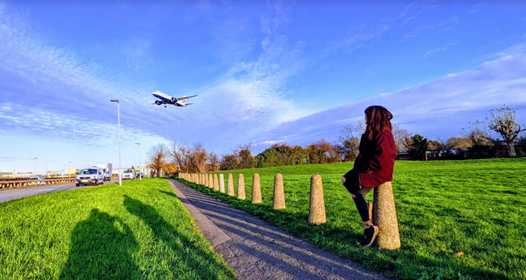
Thank you for following my blog on Thermal Power MSc, I hope you found my first post helpful. Now I will cover the more academic and technical aspects of my course. Thermal Power is a fantastic course that delivers all the ins and outs of the jet engine and gas turbine operation. This is a growing and in-demand area of research as energy will always be the forefront of engineering and optimisation, which motivated me to read this course. I also thoroughly enjoyed studying propulsion in my undergrad. My only hesitation was not thoroughly loving thermodynamics during my undergrad, but I have now learnt that everything can be enjoyed once understood correctly. Alongside all the intense revision, lecture-catchups and MS Teams groupwork, I went on a ‘virtual trip’ to the Engine Building at Cranfield, and a real-life plane-spotting trip to Myrtle Avenue near Heathrow Airport, with friends from MSc Aerospace Manufacturing. Planes galore!
The first semester predominantly entailed of two alternating modules; Gas Turbine Performance, Simulation and Diagnostics (GTPSD), and Turbomachinery and Blade Cooling (TMBC), both delivered via a face-to face session and a recorded online session available for the international students. I really took advantage of the recorded sessions and re-watched the lectures. The Kings Norton Library hosts an array of textbooks to support the module content. GTPSD looks at engine operating conditions at design point, off-design point, analysing compressor and turbine maps, non-dimensionalising parameters to allow ease of comparison, modelling simulations of different operating conditions using the in-house software ‘Turbomatch’ and evaluating the degradations associated with usage simulated in PYTHIA.
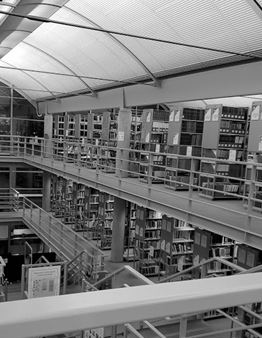
TMBC is an in-depth analysis of the blades used in compressors and turbines, the trade-offs associated with different designs and architectures. There is also a substantial use of velocity triangles that model the scenarios and aid calculations. After studying about compressors and turbines, we were taught blade cooling, and all the mechanisms and critical features design engineers must consider when determining where to cool the blade. I didn’t know blades were cooled through small holes on their surface that extrude the coolant.
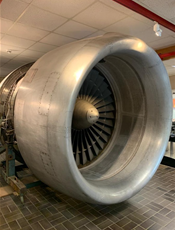
Aside from these two core modules, there is also Engine Systems, in which the cohort is required to be split into teams; marketing, infrastructure and editing teams to construct a week-long symposium, held annually. I opted to be in the editing team where we collaboratively worked on designing a logo, brochure, poster, and timetable of the week. Creative and visual ideas emerged within the group in the context of portraying the symposium as a representative of the different titles; historical evolution of engines, transitioning into electrification and hybridisation, supersonic applications and more. My chosen title is ‘alternative fuels that can be used for industrial gas turbines’, mainly selected because I want to investigate the potential usage of biofuels on an industrial scale.
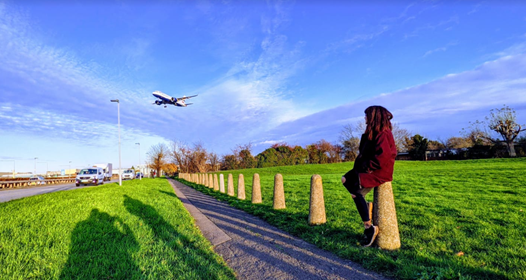
That brings me onto the final year project. This module commences right from the get-go for Thermal Power as it weighs 100 credits, whereas for other courses it may get introduced as late as May. We are all assigned a lead supervisor who will introduce various projects that they are working on, usually with other professors. I preferred a project without CFD or Matlab as I felt lacking in those areas, so I am now working on ‘predicting the life cycle analysis of electrification of a regional aircraft’. The project basically predicts the consumption of materials and emissions from birth to cradle to prove if electrification really is more beneficial for the environment or not. Weekly to fortnightly meetings with my supervisor were scheduled to make sure I was on track with my agenda. My supervisor is super helpful, and the meetings are a way to guide me in the right direction, a chance for me to share my accumulated readings through a short report and a casual catch-up of our week. She also recommends some amazing podcasts!
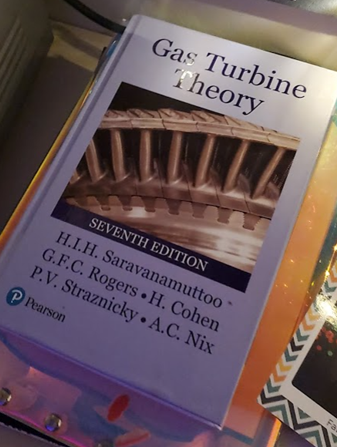
Even if CFD is not your strong point, Cranfield are well-equipped to educate us with all the necessary tools, providing an optional CFD module with an optional assessment. This was a golden opportunity to learn the basics of CFD and familiarise oneself with running simulations on ANSYS to aid their project, with the option to be assessed and gain extra credits.
Finally, there were many other scheduled lectures and virtual talks, transitioned and delivered brilliantly from what would have been face-to-face to virtual. Some of my favourites included a tour of the engines that Cranfield has, including the Whittle jet engine, conducted by Professor Pilidis. This was a fantastic way to look at all the engines in a realistic context, matching components learnt in lesson to their location within the different architectures, and we were able to visit these ourselves in smaller groups in our own time. There was also a visiting lecturer from Rolls-Royce delivering an informative lecture on the different scopes of engineers and faculties within the company, providing valuable first-hand advice on further study opportunities and areas of research in demand.
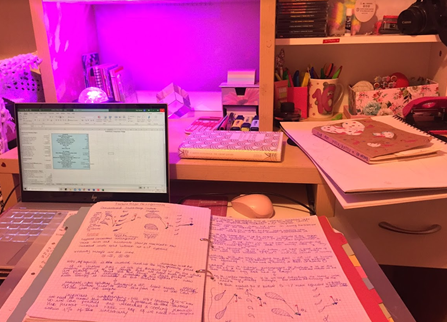
In terms of assessment, the symposium will assess our participation in its construction, and our report and presentation for our topics in the deliverance. Currently, I have just finished a time-compressed online exam for TMBC, which consisted of producing an Excel for compressors, a series of hand calculations and figurative representations for turbines, and some worded explanations for the blade cooling section. All the material was sufficient that was provided in the lectures and on Canvas, putting my pretty folder of notes to good use. Right at the end of the time-compressed exam/sleep, I had some technical issues in uploading my paper, not the best feeling after powering through calculations and spreadsheets on minimal sleep. However, my student support, Xani, came to my rescue and assisted me as soon as I contacted her. Once again, she saved the day.
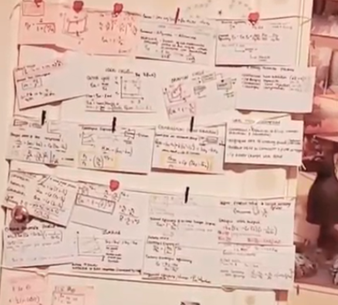
Now, I have to do some research for battery disposal for the death stage of the life cycle for my thesis. For GTSPD, we have been set an assignment spanning six weeks to exercise our knowledge and application of design point, off-design operation and simulation using Turbomatch. So far, so good, but I am sure the pressure will start to kick in the middle of January when they are due! This is my last weekend before an intensive five-day ‘Management for Technology’ module commences at 9am on Monday.
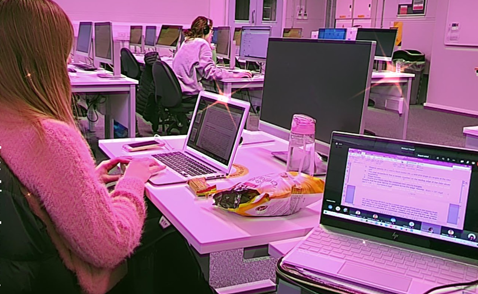
This past semester has been a very interesting one, cultivating many changes and new experiences, from living alone for the first time, to studying so in-depth about jet engines. Cranfield is a very accommodating environment, for learning to general wellbeing. The support provided to enhance your skillset, such as for a software, is abundant. Materials provided on the online teaching platform called ‘Canvas’ is likewise, and any areas that needed more material was readily provided by the professors. I was one of the few people among my undergraduate circle who benefitted from face-to-face lectures provided in a very safe and disciplined environment as opposed to total online teaching exercised in other universities, which meant I could experience the on-campus life. I warmly and optimistically look forward to the new year and new semester, as I have full faith that Cranfield will provide teaching as close to normal as they can, whilst safely adhering to government guidelines.

Regarding Christmas and winter holidays on-campus, my course-mates who unfortunately couldn’t travel back home, managed to have an intimate holiday with their flatmates, eating the special Cranfield Christmas dinner and benefitting from the many arrangements Cranfield made to ensure everyone felt as less lonely and as best as they could do in these trying times.
Season’s greetings and Happy New Year – I look forward to writing my next blog later in the semester about my week-long modules, delving deeper into my thesis, beginning my series of job applications and summoning more motivation during the lockdown and winter blues.
Categories & Tags:
Leave a comment on this post:
You might also like…
Company codes – CUSIP, SEDOL, ISIN…. What do they mean and how can you use them in our Library resources?
As you use our many finance resources, you will probably notice unique company identifiers which may be codes or symbols. It is worth spending some time getting to know what these are and which resources ...
Supporting careers in defence through specialist education
As a materials engineer by background, I have always been drawn to fields where technical expertise directly shapes real‑world outcomes. Few sectors exemplify this better than defence. Engineering careers in defence sit at the ...
What being a woman in STEM means to me
STEM is both a way of thinking and a practical toolkit. It sharpens reasoning and equips us to turn ideas into solutions with measurable impact. For me, STEM has never been only about acquiring ...
A woman’s experience in environmental science within defence
When I stepped into the gates of the Defence Academy it was the 30th September 2019. I did not know at the time that this would be the beginning of a long journey as ...
Working on your group project? We can help!
When undertaking a group project, typically you'll need to investigate a topic, decide on a methodology for your investigation, gather and collate information and data, share your findings with each other, and then formally report ...
From passion to purpose: My journey at the Pinnacle of Aviation
By: Sultana Yassin Abdi MSc Air Transport Management, Current Student Born and raised in the vibrant landscape of the UAE, with roots stretching back to Somalia, my life has always been ...

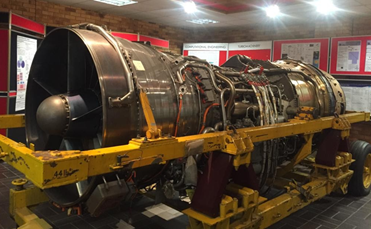
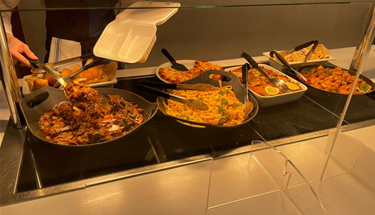
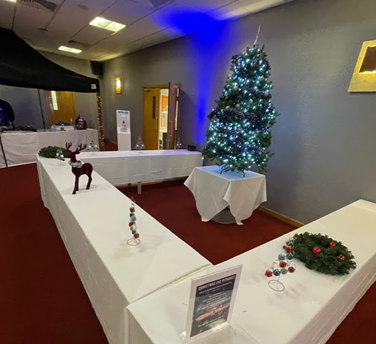






Excellent blog and an excellent choice to follow Thermal Power course.
All the best
I got my MSC degree in Thermal Power/Aerospace propulsion in 1988.
It was called the Cranfield Institute of Technology on those days